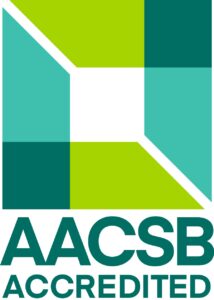Program Description
The Department of Finance, Economics, and International Business offers a Bachelor of Business Administration degree in Economics. Graduates of the program add value to many types of organizations. They are prepared to meet the challenges of the modern-day business environment because they have mastered many professional skills.
- Communicate economic ideas and analysis effectively, in writing and in oral presentations
- Use quantitative techniques, economic modeling, and problem-solving skills to develop, complete, and present a research project involving economic analysis
- Review and analyze, critically, alternative economic policy proposals
- Evaluate the effectiveness and efficiency of proposed and existing government programs.
Opportunities & Careers
- Law School
- Graduate School in Economics, Applied Economics, International Affairs, Public Administration, Finance, Statistics, and many other fields
- Business School (MBA programs)
- Analyst, Research Associate, Bank Examiner, or Financial Institution Specialist with the FDIC or Federal Reserve System
- Private Sector Financial Services: Investment Management, Financial Advising, Financial Planning & Wealth Management, Securities Broker, Banking, Insurance
- State or Federal Government, or an Economic Consultancy Firm, as a:
- Budget Analyst
- Research Analyst in Fiscal Policy, Government Program evaluation, or
- Environmental and Transportation economics
- Regional Development Planner
- Project Manager
As you can see, the possibilities are endless! And the money is good: starting salaries for graduates in economics, in the above fields, average $54,800. For more information on job and career possibilities, we have prepared for you an extensive Alumni Jobs & Careers Database. If you want to know what our alumni are doing with their Economics degrees, and what YOU can do with an Economics degree from the Lewis College of Business, you’ll find those answers in this document!
Projected job market data for Economists: https://www.onetonline.org/link/summary/19-3011.00
Major Courses
- ECN 326 – Intermediate Macro. Analysis
- ECN 328 – Intermediate Micro. Analysis
- ECN 423 – Introduction to Econometrics
- ECN 466 – Economics Workshop
- ECN/FIN Electives (12 hours)
NOTE: Students must take an International COB elective. ECN 408, 420, 421, 460, and FIN 440 cannot double count as the International COB elective and an ECN/FIN elective.
*ECN/FIN electives can be any 300 or 400 level ECN or FIN courses that are not already required (except ECN 490 and FIN 490). One elective must be at the 400 level.















